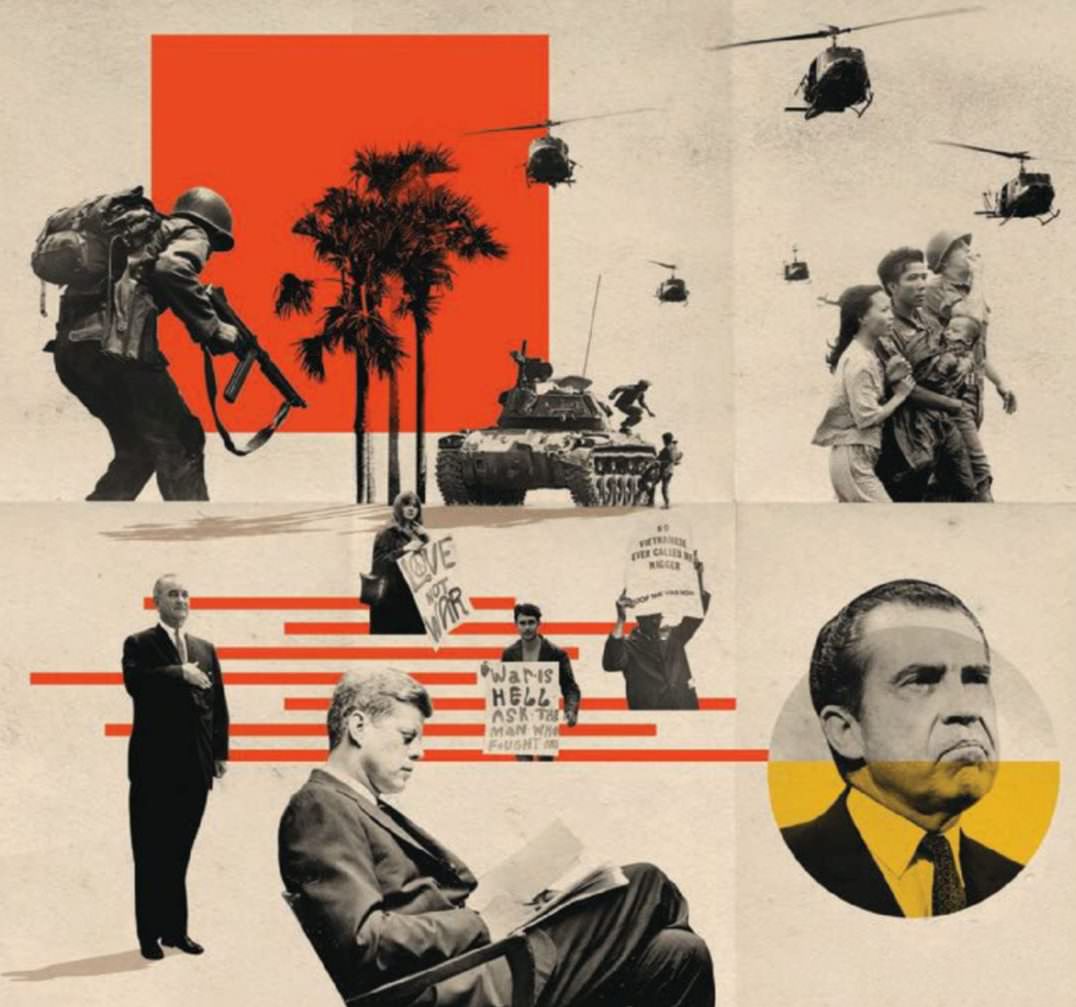The Vietnam War opened the credibility gap. What we’ve learned since has only widened it.

ON APRIL 30, 1975, when the last helicopter lifted off the roof of the U.S. Embassy in Saigon, the Vietnam War, the most consequential event in American history since World War II, ended in failure. More than 58,000 Americans and as many as 3 million Vietnamese had died in the conflict. America’s illusions of invincibility had been shattered, its moral confidence shaken. The war undermined the country’s faith in its most respected institutions, particularly the military and the presidency. The military eventually recovered. The presidency never has.
It did not happen all at once, this radical diminution of trust. Over more than a decade, the accumulated weight of critical reporting about the war, the publication of the Pentagon Papers in 1971, and the declassification of military and intelligence reports tarnished the office. Nor did the process stop when that last chopper took o›. New evidence of hypocrisy has continued to appear, an acidic drip, drip, drip on the image of the presidency. The three men who are most responsible for the war, John F. Kennedy, Lyndon B. Johnson, and Richard Nixon, each made the fateful decision to record their deliberations about it. The tapes they left behind—some of them still newly public, others long obscured by the sheer volume of the material—are extraordinary. They expose the presidents’ secret motives and fears, at once humanizing the men and deepening the disillusionment with the office they held.
This story is from the October 2017 edition of The Atlantic.
Start your 7-day Magzter GOLD free trial to access thousands of curated premium stories, and 8,500+ magazines and newspapers.
Already a subscriber ? Sign In
This story is from the October 2017 edition of The Atlantic.
Start your 7-day Magzter GOLD free trial to access thousands of curated premium stories, and 8,500+ magazines and newspapers.
Already a subscriber? Sign In

After the Miracle
Cystic fibrosis once guaranteed an early deathbut a medical breakthrough has given many patients a chance to live decades longer than expected. What do they do now?

WILLIAM WHITWORTH 1937-2024
WILLIAM WHITWORTH, the editor of The Atlantic from 1980 to 1999, had a soft voice and an Arkansas accent that decades of living in New York and New England never much eroded.

Christine Blasey Ford Testifies Again
Her new memoir doubles as a modern-day horror story.

Is Theo Von the Next Joe Rogan?
Or is he something else entirely?

Orwell's Escape
Why the author repaired to the remote Isle of Jura to write his masterpiece, 1984

What's So Bad About Asking Where Humans Came From?
Human origin stories have often been used for nefarious purposes. That doesn't mean they are worthless.

Miranda's Last Gift
When our daughter died suddenly, she left us with grief, memories and Ringo.

BEFORE FACEBOOK, THERE WAS Black Planet
An alternative history of the social web

CLASH OF THE PATRIARCHS
A hard-line Russian bishop backed by the political might of the Kremlin could split the Orthodox Church in two.

THE MAN WHO DIED FOR THE LIBERAL ARTS
Chugging through Pacific waters in February 1942, the USS Crescent City was ferrying construction equipment and Navy personnel to Pearl Harbor, dispatched there to assist in repairing the severely damaged naval base after the Japanese attack.